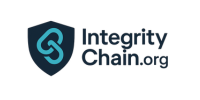Is Whistleblowing Patriotic or Disloyal?

A Global Debate on Conscience, Citizenship, and Consequences
Whistleblowing sits at a volatile intersection of ethics, legality, and identity. To some, the act of exposing wrongdoing—particularly within government or national institutions—is a profound form of patriotism. It represents loyalty not to a regime or a superior, but to a nation’s principles: accountability, justice, and public interest. To others, especially those in power, whistleblowers are traitors, violators of trust who damage reputations and compromise state security or corporate competitiveness.
This contradiction lies at the heart of many high-profile whistleblower cases: Edward Snowden, Chelsea Manning, Reality Winner, and countless unnamed individuals from developing democracies. In this editorial, we explore the philosophical, political, and cultural dimensions of whistleblowing as either an act of civic heroism or disloyal betrayal.
I. Defining Patriotism: Obedience or Conscience?
At its root, patriotism means love for one's country—but how this love is expressed varies dramatically.
- Obedience-based patriotism emphasizes loyalty to national institutions, military service, or leadership. Here, defiance (even with moral justification) may be seen as disloyalty.
- Conscience-based patriotism, by contrast, holds the country’s founding values—such as liberty, justice, and the rule of law—above its institutions. A patriot, in this view, is someone willing to challenge the system when it fails those values.
Whistleblowers, especially in the public sector, typically appeal to conscience-based patriotism. When they reveal fraud, corruption, or abuse, they often argue they’re doing so not to undermine the state, but to preserve its integrity.
II. Famous Cases: Heroes or Traitors?
Edward Snowden (USA)
A former NSA contractor, Snowden exposed mass surveillance by U.S. intelligence agencies on citizens and allies. He was charged with espionage and fled to Russia, but received global praise as a defender of civil liberties.
Supporters’ view: He upheld the U.S. Constitution and public accountability.
Critics’ view: He endangered national security and violated trust.
Daniel Ellsberg (Pentagon Papers)
Ellsberg leaked classified documents exposing how U.S. presidents misled the public about the Vietnam War. He was also charged under the Espionage Act but later became a celebrated figure.
Ellsberg himself said: “The public is entitled to the truth… I was being loyal to the Constitution.”
Satyendra Dubey (India)
Dubey exposed corruption in India’s Golden Quadrilateral road project and was assassinated for his efforts. He became a symbol of moral courage in a system plagued by apathy.
These cases highlight the emotional, legal, and political battlegrounds where the patriot-versus-traitor narrative unfolds.
III. Cultural Interpretations of Loyalty
Different societies have different moral expectations around truth-telling, hierarchy, and the collective good:
- Anglo-American cultures often frame whistleblowers as part of liberal democratic checks and balances.
- East Asian cultures, especially Japan and South Korea, historically stigmatize whistleblowing due to values around harmony, face, and hierarchical loyalty—though this is changing.
- Authoritarian regimes typically conflate dissent with treason. In such contexts, whistleblowing can carry fatal consequences, despite its ethical intent.
A whistleblower may be called a patriot in London and a criminal in Riyadh for the same act.
IV. Philosophical Frameworks
Ethics scholars have debated whether whistleblowing is a moral obligation or a personal choice:
- Utilitarianism supports whistleblowing if the benefit to society outweighs the harm (e.g., Snowden’s revelations leading to surveillance reform).
- Deontological ethics focuses on duty and intent: If the whistleblower acts in good faith to expose a wrong, the action is morally defensible regardless of the outcome.
- Communitarian perspectives, however, argue that loyalty to institutions is vital for cohesion and that whistleblowers damage the social fabric.
Thus, the debate is not only about what was revealed, but also why and how.
V. Whistleblowing in the Military and Intelligence Context
Nowhere is the patriot-disloyalty debate more heated than in the military or intelligence communities. Disclosure of classified information—no matter the motivation—often triggers charges of treason or espionage.
Critics argue:
- It endangers operatives, missions, or foreign alliances.
- It sets a precedent for subjectivity in managing secrets.
Supporters argue:
- Absolute secrecy is a tool of authoritarianism.
- Loyalty to a flag means little without loyalty to its ideals.
This tension is encapsulated in the ongoing global conversation around data privacy, national security, and civic rights.
VI. Corporate Patriotism: A Paradox?
In the corporate context, whistleblowers are often seen as “disloyal employees.” Yet when these disclosures prevent financial fraud, protect consumers, or avert disasters, they arguably serve a patriotic role—protecting national economic stability and public safety.
A few examples:
- Cheryl Eckard (GSK) exposed pharmaceutical malpractice, leading to a $750M settlement.
- Sherron Watkins (Enron) warned internally of accounting fraud before the company collapsed.
- Frances Haugen (Facebook/Meta) exposed the company’s knowledge of harm caused by its algorithms, impacting public discourse on digital safety.
In each case, the loyalty to the public arguably superseded loyalty to shareholders or management.
VII. A Shifting Global Narrative
In the 21st century, especially post-pandemic and post-Cambridge Analytica, the perception of whistleblowers has begun to shift:
- Countries like South Korea and the U.S. now reward whistleblowers financially.
- The EU Directive on Whistleblowing (2019) mandates protection across all member states.
- Whistleblowers are increasingly seen as essential components of ethical systems, not adversaries.
Still, old stigmas persist—especially in cultures or sectors steeped in secrecy.
VIII. Conclusion: The Loyalty That Challenges
So—is whistleblowing patriotic or disloyal?
The answer depends on what you believe loyalty is owed to: the power structures that define a nation or the values that guide it.
True patriots may not be those who wave the flag, but those willing to risk everything to hold it accountable.
To build stronger democracies and safer institutions, society must stop asking “Whose side are you on?” and start asking “What are you standing up for?”


